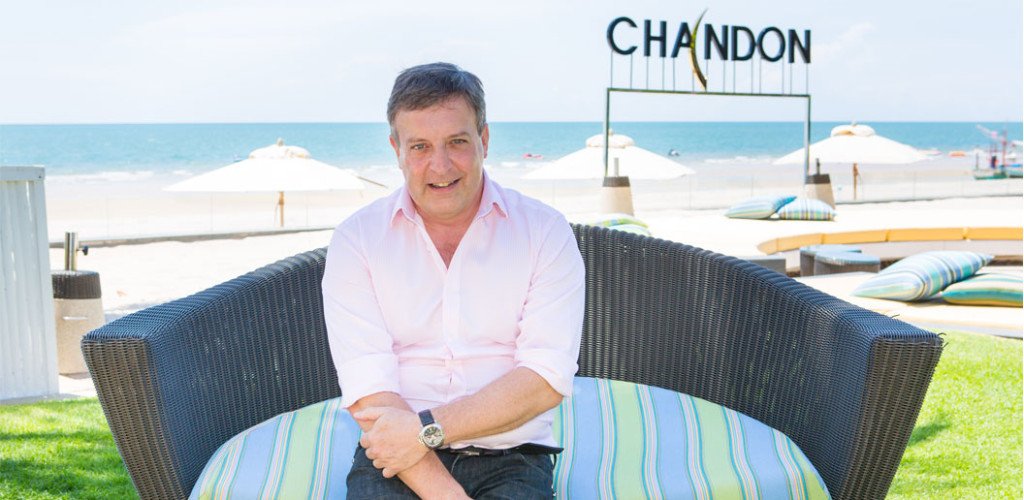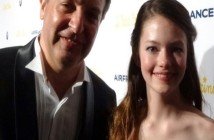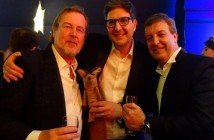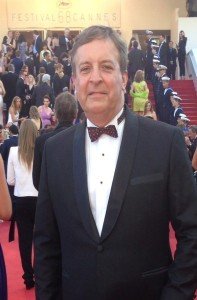 Chris Craker has operated at the very forefront of the music industry for over 25 years. He produced the soundtrack for last year’s wildly successful movie “Interstellar”Staring Mathew McConaughey and Ann Hathaway, with the Oscar nominated score composed by Hans Zimmer. Chris also recently produced the score for “The Little Prince” , a Paramount movie which debuted at the famous Canne Film Festival this May.
Chris Craker has operated at the very forefront of the music industry for over 25 years. He produced the soundtrack for last year’s wildly successful movie “Interstellar”Staring Mathew McConaughey and Ann Hathaway, with the Oscar nominated score composed by Hans Zimmer. Chris also recently produced the score for “The Little Prince” , a Paramount movie which debuted at the famous Canne Film Festival this May.
Chris was the youngest member of the London Symphony Orchestra making his debut at the early age of 22 playing the clarinet. While there he contributed to albums by Alan Parsons, Sarah Brightman and Sir Elton John and the Soundtracks for many of the Star Wars movies, E.T. and numerous others.
At the age of 28 he decided he wanted to explore other avenues of Music. Always fascinated by the record business he bought his first digital tape machine and learned everything he could about the music recording business. He received a huge contract quite quickly with a record company.
He later set up his own record label, Black Box, and went on to release over 100 albums before selling the business. He was headhunted to become the General Manager and Senior Vice President of the International Division of Sony BMG Masterworks, maintaining offices both in London and New York.
Chris has produced ten recordings in Thailand featuring the compositions of His Majesty, King Bhumipol Adulyadej, which was an absolute career highlight for him. Further, in the summer of 2006, Chris produced two albums specifically in honour of the His Majesty’s 60th Anniversary on the throne – one featuring the Royal Philharmonic Orchestra, and the other featuring arrangements by Privy Councilor, HE Rear Admiral Mom Luang Usni Pramoj with the Bangkok Symphony Orchestra.
Chris was selected to produce the music for the 1998 Asian Games, for which the hit theme song “Reach For The Stars”, performed by Sony BMG pop artist, Ta Ta Young, sold over 2.3 million copies and went straight to Number 1 in the pop charts.
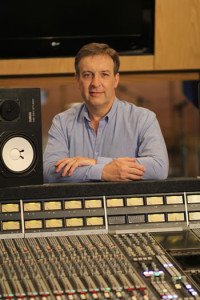 In 2008 Chris built his own recording studio, called Karma, in the picturesque fishing village of Bang Saray, 20 minutes from Pattaya. Karma quickly gained the reputation as the finest in South East Asia.
In 2008 Chris built his own recording studio, called Karma, in the picturesque fishing village of Bang Saray, 20 minutes from Pattaya. Karma quickly gained the reputation as the finest in South East Asia.
Chris splits his time between London, Los Angeles, Hong Kong and Thailand, undertaking high profile production, supervision/management, composition, conducting and recording projects.
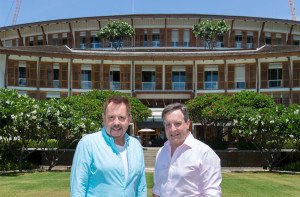 Russ Downing, Managing Director of HOT Hua Hin Property, had the pleasure of meeting Chris and recently sat down with him at the InterContinental Hua Hin Resort to discuss his amazing adventure in the music industry.
Russ Downing, Managing Director of HOT Hua Hin Property, had the pleasure of meeting Chris and recently sat down with him at the InterContinental Hua Hin Resort to discuss his amazing adventure in the music industry.
Russ: Your foray into music started with the clarinet, when did you start playing?
Chris: For my 11th birthday my parents took me to a Philarmonic concert in London where in the middle of the performance there was a clarinet soloist and something just caught my ear on that day. My parents bought me a clarinet and after playing two years I became absolutely compulsive playing 4 to 6 hours a day from the age of 14 and 7 to 8 hours a day when I reached 18.
Coincidentally I started studying with the gentleman who was that soloist, a man named John McCaw, and then ultimately sitting next to him in the Orchestra playing along and then recording him with the London Philharmonic, which I do frequently. So it’s funny how life comes around. Forty five years ago my mum and dad took me to a concert and now I have been working with them consistently over twenty-five years.
Russ: At 22 you were picked to join the London Symphony Orchestra where you stayed for six years. What was that like and why did you decide to move on to the recording side of the music industry?
Chris: Playing for the London Symphony Orchestra was a dream come to for me. Everyone around me was in their 50’s and 60’s so I felt very fortunate. At the time they were the “go-to” symphony for doing move scores. During that time we did several Star War movies, E.T., all of those John William’s big orchestral scores and I was fascinated by the whole recording process and we were recording a lot in those days for the big classical labels. I got friendly with the guys at Abbey Road studios which is where we were normally making those records and decided to take a sabbatical from playing for about six months, bought some equipment and learned how to use it. I used to hang out at Abbey Road for long periods of time, watching, listening and learning. I got my break due to a chance meeting at a dinner party with a guy who owned a record label, he invited me to make a series of 20 records featuring the London Symphony Orchestra. Again going full circle really from being the novice young boy in the orchestra to 8 to ten years later making a major series of recordings with them.
I was working simultaneously for labels like EMI, Decca, Warner Classics, Sony and over the years I’ve made over 400 records. In that heyday when CD’s were selling in large quantities we would often make 2 to 3 CD’s a week. It was a really busy full on time and I was traveling all over the world.
I ultimately invested in 3 mobile recording units. I had one in London, one in Dublin because I was doing a long series of recording for the National Symphony Orchestra and one in New York so I just used to jump on a plane with a flight bag filled with microphones and my headphones.
Russ: You started your own recording label, when did this happen?
Chris: It was actually during this time that it dawned on me that I was making so many records I should be doing it for myself so I set up my label and named it Black Box Music. We quickly grew the label over 2 to 3 years to the point where we were releasing 3 to 4 records a month and the catalog was up around 100 titles. We had distribution in 27 countries. I was doing a lot of traveling visiting our distributors and it got to be too much so I elected to sell the label to the Sanctuary Group which was a large independent label in London whose roster was very diverse. They had a Rock division which handled groups like Iron Maiden, Gun’s and Roses and doing big touring events with really big Rock Bands. They also had a middle of the road label and then a classical label which I ended up running. After a couple of years we brokered a deal and now Black Box is owned by Universal Music which is the biggest music empire in the world, so the label still goes on.
Contractually I had to stay on with Sanctuary for two years and then I was head hunted by Sony Music to run their classical division. I originally worked out of their London office but quite quickly realized that I need to be in their New York office. I kept my family in London and would fly to New York on a Monday and back to London on a Friday with frequent visits to Berlin and Tokyo which was where the other two main offices were. It was quite a crazy but fun time. Eventually the corporate life got too much for me and I decided after 4 years that I wanted to go back to making music. It was then that I built my recording studio in Thailand. I wanted to set up a creative utopia that would be a brilliant place for musicians to record without all of the distractions of the real world.
Russ: What initially brought you to Thailand?
Chris: I was recording in the Abbey Road studios and received a fax from Privy Councilor, HE Rear Admiral Mom Luang Usni Pramoj inviting me to come and record his Majesty’s music for his golden jubilee celebration, so I was honored to get that invitation and that was the start of a very long working relationship with Mom Luang Usni Pramoj and we’ve made 10 or 12 records together. It’s been a seamless endless string of projects ever since which is why 8 years ago I decided to set some roots here. Originally I was spending 12 to 14 weeks a year in Thailand but now it’s much more. I like the climate and the vibe. Our studio has software that allows us to connect to studios all over the world, this allows me to record my friends in L.A. or London out of my control room in Bang Saray.
Russ: Would you say your forte’ is classical or are you all over the place?
Chris: It started out as classical and then moved to Jazz. I like jazz and used to hang out at Ronnie Scott’s in London and the Blue Note in New York. I got familiar and friendly with Jazz artists from all over the world so Black Box had a jazz division. Over time I started making pop records as well, in fact the second big job I did in Thailand was with Tata Young recording the theme song for the Asian Games which went on to sell 2.3 million copies and became one of her biggest selling hits. It was a big Celine Dion type of sound with a full orchestra which was unheard of in Thailand at that time. Stylistically I’m into everything but I probably do more pop records than anything and movie soundtracks.
Pick up HOT Magazine’s July 15th issue for the completion of Russ’s interview with Chris Craker.


